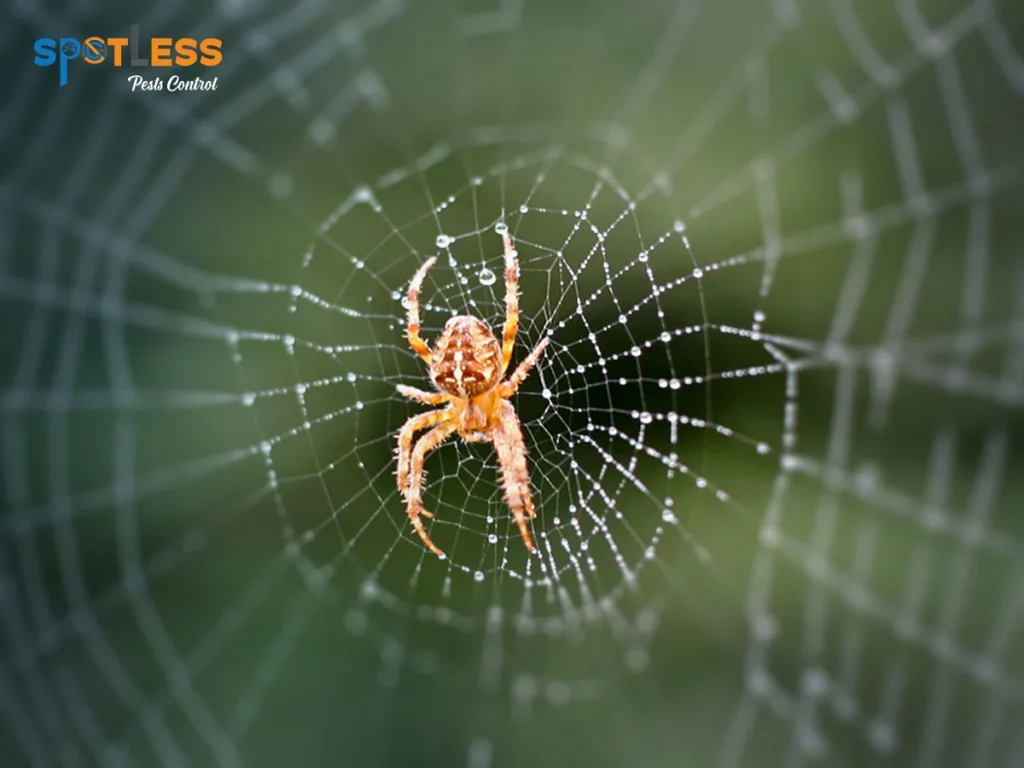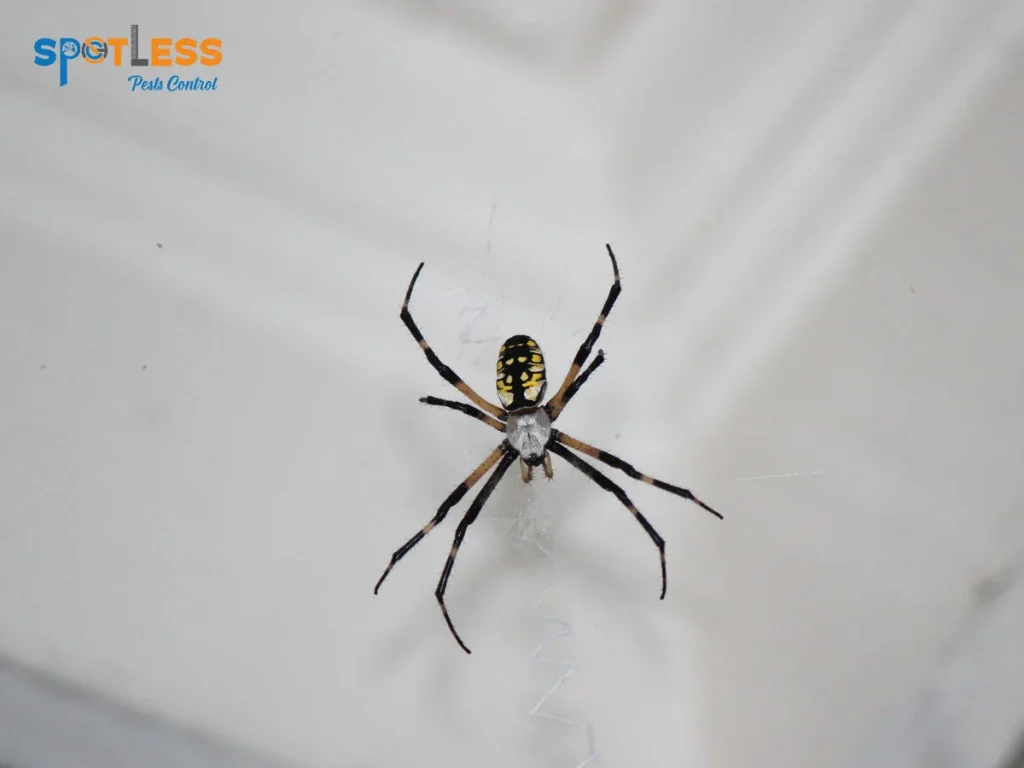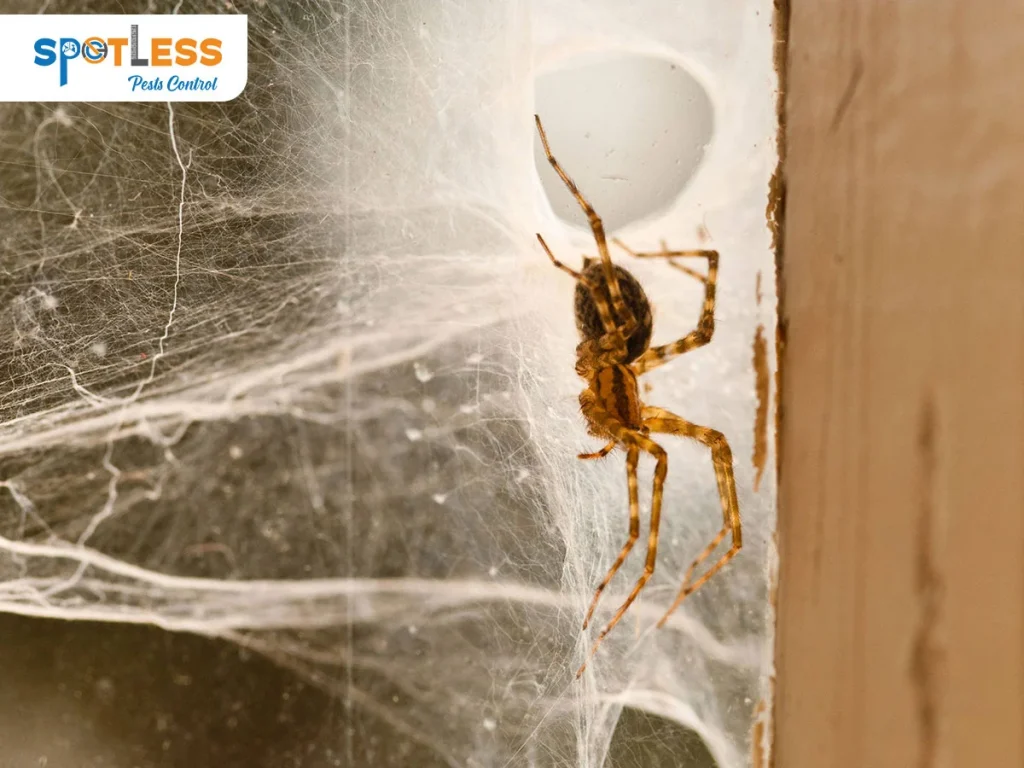Spider Extermination Methods To Follow For A Pest-Free Home!
Spiders are common pests in homes all over the world. They are attracted to food and water and can find their way into homes through even the most minor cracks and crevices. Once inside, spiders can reproduce quickly and soon become a nuisance or even a health hazard.
Spider infestations can be a problem for several reasons. First, spiders can be unsightly and frightening. Many people are afraid of spiders, and even the sight of a single spider can be enough to send them running. Second, spiders can bite, and while most spider bites are not harmful, some spiders, such as black widows and brown recluse spiders, can deliver edges that can be serious or even life-threatening. Third, spiders can attract other pests, such as flies and mosquitoes. These pests are often the carriers of certain diseases that can get transmitted to humans. For these reasons, it is essential to practice good Spider Extermination Methods for its removal.
Understanding Spider Behavior

Spiders are common household pests, but most species are harmless to humans. However, some spiders, such as the brown recluse and black widow, can deliver venomous bites.
- Spiders are nocturnal predators, meaning they hunt at night. They eat various insects, including flies, mosquitoes, and cockroaches. Spiders are beneficial pests in many ways, as they help to control insect populations. However, they can also be a nuisance, primarily when found in large numbers.
- Spiders are solitary creatures. They do not live in colonies or groups. Most spiders build webs to catch their prey. However, some spiders, such as wolf spiders, are hunters that do not build webs.
- Spiders are very sensitive to vibrations. They can sense the movement of insects in their webs, even from a distance. When an insect lands in a trap, the spider quickly wraps it in silk. The spider will then inject the insect with venom to kill it.
- Spiders can lay hundreds of eggs in a single egg sac. The egg sacs are often hidden in dark, secluded places. Spider eggs hatch after a few weeks, and the baby spiders will disperse for food.
DIY Spider Extermination Methods

Spiders can be a nuisance, but there are many ways to control them without resorting to harsh chemicals. Here are a few natural and effective methods:
Natural repellents
Spiders dislike the smell of specific essential oils, such as peppermint, citrus, and lavender. Mix a few drops of it with water and keep it aside in a spray bottle to use essential oils as a spider repellent. Spray the mixture around entry points and areas where you have seen spiders. Otherwise, you can add a few drops of it in a cotton ball and strategically place it.
Cleaning and decluttering
Spiders are attracted to clutter, so make sure to keep your house clean and organised. Remove any unnecessary boxes, piles of clothes, and other items that could provide hiding places for spiders. Pay special attention to corners and dark areas.
Sealing entry points and cracks
Spiders can enter your home through even the smallest cracks. Seal cracks around windows, doors, and foundations with caulk or sealant. Also, install door sweeps and screens to keep spiders out.
Using spider traps and sticky tapes
Spider traps and sticky tapes can effectively catch spiders. Please place them where you have seen spiders or where they are likely to travel. Be sure to regularly check the traps and tapes and empty them as needed.
Vacuuming and regular dusting
Vacuuming and dusting regularly will help you get rid of spiders and their eggs. Pay special attention to corners and dark areas.
Here is a step-by-step guide for using each of these methods:
Natural repellents
- Add some drops of essential oil with water and mix it finely in a spray bottle.
- Spray the mixture around entry points and areas where you have seen spiders.
- Reapply the spray every few days or as needed.
Cleaning and decluttering
- Remove any unnecessary boxes, piles of clothes, and other items from your home.
- Pay special attention to corners and dark areas.
- Vacuum and dust regularly.
Sealing entry points and cracks
- Identify any cracks around windows, doors, and foundations.
- Seal the cracks with caulk or sealant.
- Also, install door sweeps and screens to keep spiders out.
Using spider traps and sticky tapes
- Place spider traps and sticky tapes where you have seen spiders or where they are likely to travel.
- Check the traps and tapes regularly and empty them as needed.
Vacuuming and regular dusting
- Vacuum and dust your home regularly, paying particular attention to corners and dark areas.
- By following these simple steps, you can help to reduce the number of spiders in your home and enjoy a pest-free environment.
How Spider Control Service in Canberra Keeps Home Pest Free?
When to seek professional help for spider infestations?

It is advisable to seek professional help for spider infestations if:
- The infestation is severe or widespread.
- You have identified venomous spider species, such as black widows or brown recluses.
- You have tried DIY methods without success.
- You have allergies or sensitivities to spiders or spider venom.
- You have a young child or pet in your home.
Non-chemical approaches used by pest control professionals
Pest control professionals use a variety of non-chemical approaches to control spider infestations, including:
- Spider exclusion techniques– It involve sealing up entry points and cracks in your home’s foundation and exterior walls. This can be done using caulk, sealant, or other materials.
- Structural repairs to prevent re-infestation– If spiders enter your home through damaged structures, such as a torn window screen or a hole in the foundation, pest control professionals can make the necessary repairs to prevent re-infestation.
- Long-term benefits of non-chemical methods
Non-chemical methods of spider control offer several long-term benefits, including:
Safety Guidelines For DIY & Professional Spider Extermination Methods
DIY
- Always wear protective gear, for instance, long sleeves, gloves and pants, when handling spiders or spider webs.
- Take the help of a vacuum cleaner or broom to remove spider webs and egg sacs.
- If you are using a pesticide, follow the directions carefully.
- Avoid spraying pesticides near food, water, or pets.
- If you are bitten by a spider, clean the wound and seek medical attention immediately.
How To Identify Insect Infestations & Address It The Right Way?
Professional
- Hire a reputable pest control company that has experience in exterminating spiders.
- Make sure the company is licensed and insured.
- Ask the company about their methods and the pesticides they will be using.
- Be sure to follow the company’s instructions before and after the treatment.
Potential risks
- Spider bites can be venomous and cause serious health problems.
- Pesticides often are harmful to humans, pets, and nature.
The bottom line is If you’re thinking about doing it yourself, take safety precautions. Wear gloves, long sleeves, and pants when handling them or their webs. And if you’re using a pesticide, follow the directions carefully.
If you are planning to hire a professional, ensure the company is licensed and insured. Ask about their methods and the pesticides they’ll be using. And be sure to follow their instructions before and after the treatment.
A pest-free home is crucial for your health and peace of mind. Pests can carry diseases, trigger allergies, and damage your property. Here are a few tips to keep your home pest-free:
- Seal up cracks.
- Clean your yard.
- Store food in airtight containers.
- Take out the trash regularly.
- Fix leaky faucets.
For the best professional and affordable pest control solutions in Canberra call Spotless Pests Control Today!
Follow us on Facebook




